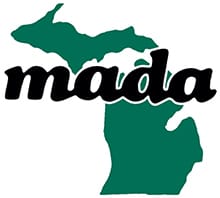A recent Talking Michigan Transportation podcast provided a conversation with Eric Morris, Michigan office lead for HNTB, the transportation consultant selected to complete a tolling study.
Some 35 states have at least one facility with tolling. But that number is a little deceiving because Michigan would be counted in that total since there is tolling on big bridges and/or international crossings but no tolling on non-bridge road segments.
Morris says the experts analyzed all 31 highways in Michigan for the study and determined that 14 could become toll roads, including large portions of Interstates 75, 94 and 96.
As Bridge Michigan reported, any tolls would take years to implement and require approval from the Legislature and the governor, among numerous hurdles.
Morris talks about the differences between various road user charge (RUC) options, including mileage-based user fees (MBUF) and tolling and how pilot programs seeking people to participate have been voluntary, so far, including one in Oregon that has generated a lot of discussion.

